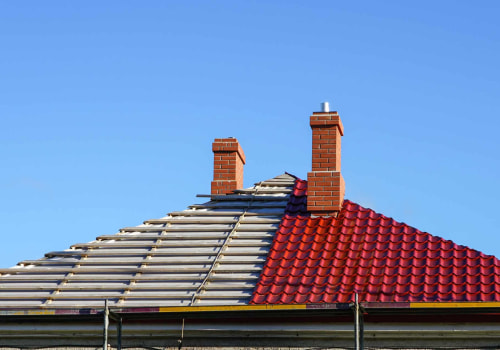When homeowners are faced with roofing issues, one of the most important decisions they must make is whether to invest in a full roof replacement or opt for targeted repairs. At first glance, repairs often seem like the more cost-effective option, but this is not always the case when viewed over the long term. Factors such as the age of the roof, the extent of the damage, material quality, and the home’s future plans all play into the financial outcome of the decision. Understanding the long-term implications of repairs versus replacement can help homeowners make the most informed choice for both their budget and their property’s structural integrity.
The Short-Term Appeal of Repairs
Roof repairs are often attractive because they cost less upfront and can quickly address immediate problems such as leaks, missing shingles, or minor storm damage. For homeowners who are not ready for a large investment, repairs provide a temporary solution that restores function and protects the home from further damage. Repairs are also appropriate when the roof is relatively new or when damage is confined to a small area. However, repeated repairs can become costly over time, especially if underlying structural issues go undetected.
Long-Term Savings of Roof Replacement
While a full roof replacement is a much larger initial expense, it offers significant savings over the long term. A new roof provides decades of reliable protection, eliminating the need for frequent patchwork and emergency repairs. Modern roofing materials are designed to be more durable and energy-efficient, which can reduce heating and cooling costs for the household. Additionally, replacement often comes with strong warranties, giving homeowners peace of mind that their investment is protected. Though the upfront cost may feel daunting, the long-term financial benefits often outweigh those of ongoing repairs.
Considering Roof Age and Condition
The age and overall condition of the roof are critical factors in deciding between repairs and replacement. If the roof is nearing the end of its expected lifespan—typically 20 to 30 years for asphalt shingles—then replacement is generally the wiser choice. Repairs on an aging roof may only delay the inevitable and lead to spending money on fixes that do little to extend longevity. On the other hand, if the roof is relatively young and damage is minimal, a repair may be all that is necessary to restore functionality and preserve the home’s protection.
Professional Guidance and Expertise
Ultimately, the decision between roof repair and replacement should not be made without expert guidance. A professional inspection can uncover hidden problems, provide accurate assessments, and help determine which option will truly save more money in the long run. Trusted providers like a Raleigh roofing contractor can evaluate both the short-term and long-term implications, offering homeowners a clearer picture of what will best protect their property and budget. Their expertise ensures that homeowners are not simply treating symptoms of roofing problems but are addressing the root cause in the most cost-effective way.
Conclusion
When weighing roof replacement versus repairs, the choice comes down to long-term value rather than short-term savings. While repairs may be suitable for newer roofs or isolated damage, replacement often proves to be the more cost-effective option for aging or extensively damaged roofs. By investing in a new roof, homeowners benefit from enhanced durability, improved energy efficiency, and reduced maintenance costs. With professional guidance, homeowners can confidently choose the option that provides the greatest financial and structural benefits, ensuring lasting protection for one of their most important investments—their home.






